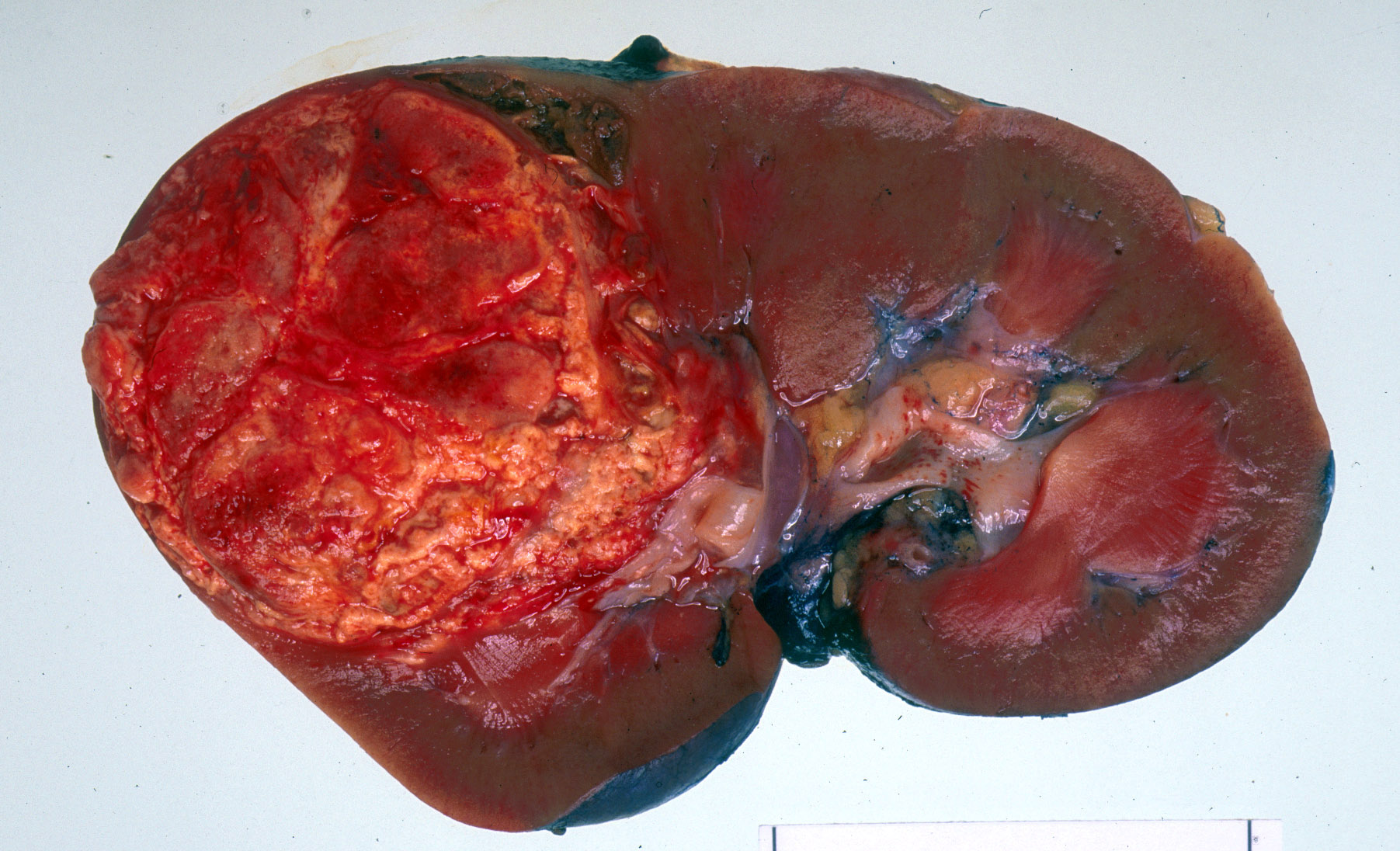Kidney Cancer
What is kidney cancer?

Kidney cancer — also called renal cancer — is a disease in which kidney cells become malignant (cancerous) and grow out of control, forming a tumor. Almost all kidney cancers first appear in the lining of tiny tubes (tubules) in the kidney. This type of kidney cancer is called renal cell carcinoma. The good news is that most of kidney cancers are found before they spread (metastasize) to distant organs. And cancers caught early are easier to treat successfully. However, these tumors can grow to be quite large before they are detected.
The kidneys are two bean-shaped organs, each about the size of a fist. They lie in your lower abdomen on each side of your spine. Their main job is to clean your blood, removing waste products and making urine.
Symptoms of Kidney Cancer
Doctors don’t know the causes of kidney cancer. But certain factors appear to increase the risk of getting kidney cancer. For example, kidney cancer occurs most often in people older than age 40. These are some other risk factors for kidney cancer:
- Smoking . If you smoke cigarettes, your risk for kidney cancer is twice that of nonsmokers. Smoking cigars may also increase your risk.
- Being male. Men are about twice as likely as women to get kidney cancer.
- Being obese. Extra weight may cause changes to hormones that increase your risk.
- Using certain pain medications for a long time. This includes over-the-counter drugs in addition to prescription drugs.
- Having advanced kidney disease or being on long-term dialysis, a treatment for people with kidneys that have stopped working
- Having certain genetic conditions, such as Von Hippel-Lindau (VHL) disease or inherited papillary renal cell carcinoma
- Having a family history of kidney cancer. The risk is especially high in siblings.
- Being exposed to certain chemicals, such as asbestos, cadmium, benzene, organic solvents, or certain herbicides
- Having high blood pressure. Doctors don’t know whether high blood pressure or medication used to treat it is the source of the increased risk.
- Being black. The risk in blacks is slightly higher than in whites. No one knows why.
- Having lymphoma. For an unknown reason, there is an increased risk of kidney cancer in patients with lymphoma.
Having these risk factors does not mean you will get kidney cancer. And it’s also true that you can have none of them and still get the disease.
Types of kidney cancer
Many different types of cancer can affect the kidneys. The most common type is renal cell carcinoma (RCC), which accounts for more than 80% of all kidney cancers.
Rarer types of kidney cancer include:
- Transitional cell cancer – develops in the lining of the kidneys and usually affects men who are 50 years of age or over
- Wilms’ tumour – a rare type of kidney cancer that affects children
Treating kidney cancer
The earlier kidney cancer is diagnosed, the easier it is to treat.
The treatment of kidney cancer depends on the size and spread of the cancer. Surgery is the most common first course of action, with the aim of removing the cancer cells.
Unlike most other cancers, chemotherapy isn’t very effective at treating kidney cancer. However, non-surgical treatments are available, such as radiotherapy or targeted therapies. These are most commonly used in the more advanced stages of kidney cancer, when the cancer has spread beyond the kidney.
The main treatments for kidney cancer are covered in detail below and include:
- Radical Nephrectomy
- Partial Nephrectomy
- Embolisation
- Radiotherapy
- Targeted Therapies
- Immunotherapy
(a) Radical Nephrectomy-
In ACKU we are doing Laparoscopic radical nephrectomy successfully. Avoiding a big incision (cut) on abdomen we are doing this operation through four key hole (port) only and patient can home on 3rd post-operative day.
(b) Partial Nephrectomy-
In case of small tumour in either of the pole or in case of cancer in a solitary Kidney, we are doing renal spacing surgery by Laparoscopic partial nephrectomy.
Preventing kidney cancer
As the causes of kidney cancer aren’t fully understood, it’s not possible to fully prevent it.
However, leading a healthy lifestyle may reduce the chances of developing the condition. A combination of a healthy diet and regular exercise will help to avoid becoming overweight or obese, which is a significant risk factor for kidney cancer.
If you’re overweight or obese, you can lose weight and maintain a healthy weight by combining regular exercise with a calorie-controlled diet.
Quick Links
Contact Centre
- General enquiries
+88 02 9145809
+88 02 9145808
+88 01746 344179 - Request a call back
Can we call you back at a more convenient time - Email us
Send us an email enquiry and we will get back to you.
